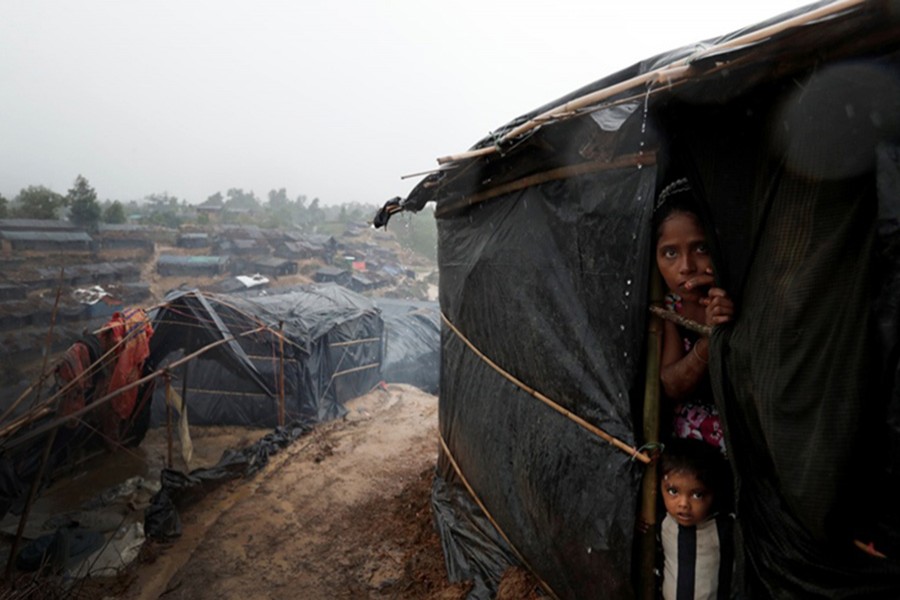The Asian Development Bank (ADB) has approved grant assistance of $100 million—the first of a $200 million package to help Bangladesh develop basic infrastructure and services for Rohingya refugees.
Since late August 2017, more than 0.7 million people have crossed the border from Rakhine State, Myanmar, into Cox’s Bazar at the southeast tip of Bangladesh.
“This has caused a huge strain on the local infrastructure, economy as well as a major humanitarian concern,” ADB said.
The displaced persons are living in 32 camps spread over the district. Providing food, shelter, health, sanitation, water, and other essential services in the camps while fending off disease is a daily challenge.
“If unaddressed, conditions are feared to worsen dramatically,” ADB said in a statement on Friday.
“Given the scale of the humanitarian needs, we are coordinating closely and promptly with the World Bank and other development partners to support the government in addressing the crisis in Cox’s Bazar,” said ADB President Takehiko Nakao.
After Nakao received a request from Bangladesh Finance Minister Abul Maal Abdul Muhith for grant assistance when they met in early May, ADB developed and processed the project at an extraordinary speed under its emergency procedure, according to the statement.
The ADB $100 million grant project will support the displaced people sheltered in camps in Cox’s Bazar focusing on water supply and sanitation, disaster risk management, energy and roads.
The project will rehabilitate roads within the camps to connect essential food distribution and storage centers, hospitals, education facilities, and provide emergency access. It will also resurface the road from Cox’s Bazar to Teknaf and other critical sections, reports bdnews24.
To address water needs, the project will provide mobile water carriers, community bathing facilities, and build a piped water supply system and waste management facilities, together with small water treatment plants. Solar powered and mini grid-connected street lighting will be provided and access to electricity augmented by substations, distribution lines, and transformers.
The project has been developed and will be implemented in coordination with United Nations agencies, the World Bank, and other donors that are giving humanitarian relief such as food, water, medical aid, and temporary shelter.
The first phase of the project is costing $120 million over about 2.5 years. The first ADB $100 million grant will come from the Asian Development Fund, while the government will provide $20 million.
The scope and timing of a second phase of ADB grant support of a further $100 million will build on the progress of the first phase.


